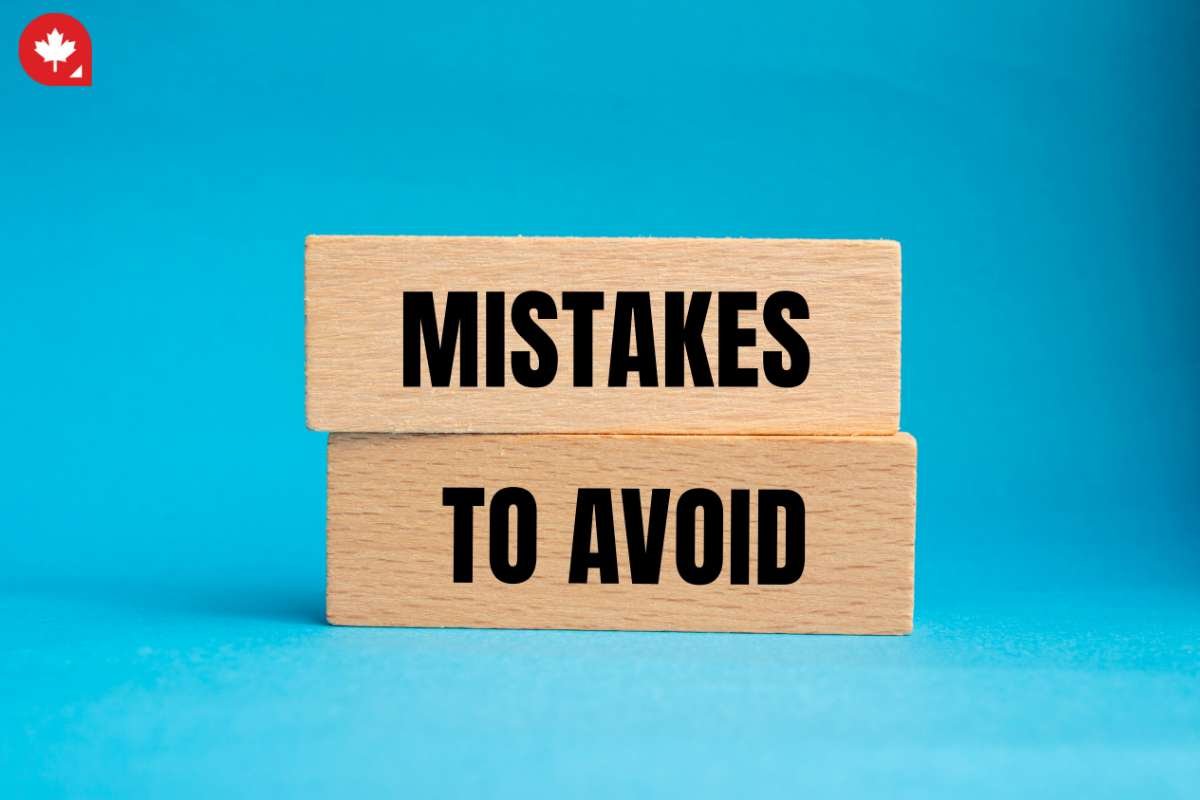Family sponsorship is a popular pathway for bringing loved ones to Canada, allowing Canadian citizens and permanent residents to reunite with family members. Unfortunately, many sponsorship applications are denied despite meeting the basic eligibility requirements. Several factors can lead to the rejection of family sponsorship, from incomplete documentation to financial issues. By being aware of these potential pitfalls, you can take proactive steps to avoid costly mistakes. Our guide offers insight into these reasons and how you can increase your chances of a successful application.
What Are the Most Common Reasons for Family Sponsorship of Canada Refusals?

The process can be complex, but knowing the common pitfalls can guide you more effectively. Let us take a closer look at why Canadian immigration officials refuse family sponsorship applications.
Incomplete or Inaccurate Documentation
Your family sponsorship application requires a complete set of documents, all of which must be accurate and complete. Immigration, Refugees and Citizenship Canada (IRCC) follow strict standards regarding documentation. Missing documents or submitting incorrect or outdated paperwork can lead to an immediate return of your application. This can significantly delay your application process and result in a refusal if not addressed promptly.
Financial Ineligibility of the Sponsor
As a sponsor, you must demonstrate sufficient income to support your family members without relying on public assistance. This requirement becomes especially important when sponsoring parents or grandparents, as the financial obligations are higher. The IRCC sets minimum income requirements for the past three tax years, and failure to meet them can result in a refusal. However, these financial criteria do not apply if you sponsor a spouse or dependent children.
Ineligibility of the Sponsored Person
Canadian immigration authorities may deem the person you are sponsoring inadmissible for various reasons. These can include security concerns, such as involvement in human rights violations or crimes, and significant health issues that pose a risk to public health. A criminal record, particularly of severe offenses, may also make the individual ineligible for sponsorship. Any previous immigration violations or failures to comply with Canadian immigration rules can lead to a refusal.
Misrepresentation or Fraud
Canadian officials treat any misrepresentation or fraudulent activity in your sponsorship application as a serious offense. Even honest mistakes, such as submitting incorrect information or documents, can lead to severe consequences. Misrepresentation can result in a five-year ban from Canada, and in some cases, it could also result in the loss of permanent resident status. Ensuring all information is truthful and accurate to avoid these serious issues is crucial.
Failure to Prove a Genuine Relationship
The IRCC carefully scrutinizes spousal sponsorships and common-law partnerships to ensure they are not based on convenience or fraudulent intent. You must provide substantial evidence to prove your relationship is genuine and not entered solely for immigration purposes. Immigration officers are trained to detect relationships that are not authentic, and a failure to establish the legitimacy of your relationship can result in a sponsorship refusal. Proof of communication, joint finances, and other documentation can help strengthen your case.
Non-Compliance with Sponsorship Obligations
If you have previously sponsored family members, you must have complied with all sponsorship obligations to be eligible to sponsor others. If your previously sponsored relatives received social assistance during their undertaking period, you could be deemed ineligible for future sponsorships. Non-compliance with sponsorship obligations may result in a refusal of future applications. It's essential to meet all the conditions set out in previous sponsorship agreements to ensure you can continue sponsoring family members in the future.
Application Submitted After the Deadline
Adhering to deadlines is vital when submitting a family sponsorship application. Missing the application deadline and failing to respond to additional information requests within the set timeframe can result in immediate refusal of your application. IRCC has strict rules regarding submission dates, and missing these deadlines can ensure your application is considered. Always ensure that your application is submitted on time and meet any additional deadlines during the process.
Misunderstanding of Eligibility Criteria
A common mistake among applicants is misunderstanding the eligibility criteria for family sponsorship. For instance, engaged couples must legally marry before applying for sponsorship unless they meet specific common-law partner requirements. It is important to thoroughly research the eligibility rules and ensure that both the sponsor and the applicant meet all conditions before starting the application process. These requirements must be revised to avoid unnecessary delays or a refusal.
Incomplete or Inaccurate Forms
Forms are critical to the family sponsorship application process. All forms must be the most recent versions, complete, and signed correctly. Submitting outdated forms, incomplete answers, or forms with conflicting information will automatically refuse your application. Even if a representative fills out the forms for you, the sponsor is ultimately responsible for ensuring that all details are accurate and correct before submission.
Tips to Avoid Refusal

The right strategies make all the difference in getting your Canadian family sponsorship application approved. Here's a guide to help you avoid refusal.
Gather Detailed Documentation
Substantial documents are the foundations of your family sponsorship application. You will need:
- Personal identification and relationship proof,
- Financial statements and employment records,
- Medical examinations and police certificates,
- Supporting evidence of genuine relationships, and
- Translation of non-English/French documents.
Be Honest and Transparent
Your Canadian family sponsorship process demands complete transparency. Full disclosure is vital - even minor omissions can cause serious problems. You should provide accurate, verifiable evidence about your relationship and financial situation. Ask for clarification if anything seems unclear instead of making assumptions.
Understand the Timeline
A successful family sponsorship timeline requires you to:
- Check current processing times on IRCC's website,
- Plan for medical examinations and police certificates,
- Account for document translation time, and
- Build in extra time for unexpected delays.
Respond to Requests for Additional Information Promptly
Quick responses to IRCC's requests for more information are vital. You have 30 days to respond; missing this deadline risks your application. Set up a reliable communication system to handle IRCC correspondence efficiently.
Stay Informed
Immigration rules change often. You should subscribe to IRCC's updates and check their website regularly for changes that might affect your application. Joining reputable immigration forums or groups helps you connect with others in similar situations, but always verify information through official channels.
What Can I do if my Family Sponsorship Application is Refused?
A family sponsorship refusal can feel devastating, but you still have several ways to continue your immigration trip to Canada. Let us look at your options and the best ways to handle this situation.
Gain a Clear Understanding of the Refusal Letter
The first significant step after receiving a Canadian family sponsorship refusal is to analyze the letter. This letter explains why your application didn't succeed. You have 30 days from receiving the refusal to act, so quick action matters. If the letter lacks details, you should ask for a full picture of the refusal through an Access to Information and Privacy (ATIP) request. Your refusal letter should point out these elements:
- Specific grounds for refusal,
- Missing or inadequate documentation,
- Concerns about relationship authenticity,
- Eligibility issues, and
- Procedural problems.
Reapply With Corrections
A new family sponsorship application works well, mainly when you do not deal with the original issues. Take these vital steps before you submit a new application:
- Fix all problems mentioned in the refusal letter,
- Collect more supporting documentation,
- Update any outdated information,
- Make sure all forms are current and filled out right, and
- Add a detailed explanation letter.
Note that your new application needs to be stronger than the last one. Sending the same documents with small changes will not yield different results.
Consider an Appeal
The Immigration Appeal Division (IAD) might help if you think the refusal was wrong. Outside Canada, family sponsorship applications can use this option, but you should know your appeal must be filed within 30 days of the refusal. The appeal needs specific documents, such as:
- Notice of Appeal,
- Copy of the refusal letter,
- Additional evidence supporting your case, and
- Legal submissions when needed.
Appeals take time and can be complex, often lasting several months. But they are a great way to hear new evidence and clear up any confusion about your family sponsorship case. You can gather more evidence while your appeal moves forward. This might include:
- Updated proof of relationship,
- New financial documentation,
- Additional supporting affidavits, and
- Evidence that addresses specific concerns from the refusal.
Inland stream applications might need a judicial review through the Federal Court of Canada instead of an appeal. This process has rules and timelines, so getting professional legal help makes sense. Each case stands unique, and your best move depends on your situation and why you got refused. A chat with an immigration professional can help you figure out the right strategy for your family sponsorship case.
How Can I Sponsor My Family to Move to Canada?

The Canadian family sponsorship program enables Canadian citizens and permanent residents to reunite with their loved ones. Awareness of the process involved is crucial to achieving success if you plan to bring your family to Canada through sponsorship. Qualification requirements for sponsors include:
- Be at least 18 years old,
- Be a Canadian citizen, permanent resident, or registered under the Canadian Indian Act,
- Live in Canada (or prove intent to return if you're a citizen living abroad),
- Have sufficient financial means to support sponsored family members, and
- Sign an undertaking to provide financial support.
Sponsoring family members in Canada creates a legal commitment to their financial support. The undertaking period varies from three years for spouses and partners to twenty years for other family members. Spousal sponsorship doesn't require income thresholds, but different categories, such as parent and grandparent sponsorship, need specific income levels.
Take note that Quebec residents face additional requirements. The Quebec Ministry of Immigration must approve your application, and you need a separate undertaking with the province. These requirements stem from Quebec's unique immigration agreements with the federal government. Documentation is Key A complete family sponsorship application needs these documents:
- Proof of your status in Canada,
- Evidence of financial capability,
- Police clearance certificates,
- Medical examination results, and
- Biometrics for family members over 18.
Applications typically take about 12 months to process, though specific circumstances and sponsorship types may affect this timeline. Working with an immigration professional helps ensure your application meets requirements and moves smoothly through the system.
FAQs
Can I Apply for Family Sponsorship if I Previously Defaulted on a Sponsorship Agreement?
If you have defaulted on a previous sponsorship agreement, it may affect your eligibility to sponsor family members in the future. You must demonstrate that you have complied with all obligations from your previous sponsorship before applying again. You must meet previous responsibilities, such as financial support, to avoid a refusal of your new application.
How can I Avoid Misrepresentation or Fraud in my Sponsorship Application?
To avoid misrepresentation or fraud, ensure that all information in your application is truthful and accurate. Double-check all documents and forms for completeness and consistency before submission. If you're unsure about any aspect of the application, consider consulting with a qualified immigration professional.
What Should I Do if My Family Sponsorship Application Was Wrongfully Refused?
If your family sponsorship application was wrongfully refused, you can request a review or appeal the decision within the given time frame. Consult with an immigration lawyer to assess the reasons for the refusal and determine the best course of action. In some cases, you may need to provide additional information or clarify misunderstandings to support your case.




